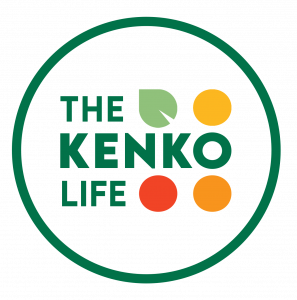I am Kashish Ahuja, dedicated and passionate nutritionist at The Kenko Life.

Diet refers to the types and amounts of food and beverages a person consumes regularly. It can also refer to a specific eating plan designed to achieve a particular health goal, such as weight loss, muscle gain, or managing a medical condition. A healthy lifestyle refers to a way of living that promotes overall well-being, physical health, and mental well-being. It involves making choices and adopting habits that enhance your physical fitness, mental clarity, emotional stability, and social relationships.
Balanced Diet: A diet that includes a variety of foods in the right proportions, providing essential nutrients (carbohydrates, proteins, fats, vitamins, and minerals) in adequate amounts. A healthy diet is one that supports overall health by providing necessary nutrients for the body to function properly.
The science behind a balanced diet:
- Macronutrients:
These are the nutrients that the body requires in large amounts to provide energy and maintain body functions.
- Carbohydrates: Carbs are the body’s main energy source. They are broken down into glucose (sugar) during digestion, which fuels brain function, physical activity, and metabolism. Carbohydrates come from sources like grains, fruits, vegetables, and legumes. Complex carbohydrates (whole grains, starchy vegetables) are preferred for their fiber content and slower digestion, providing longer-lasting energy.
- Proteins: Proteins are the building blocks of the body, necessary for growth, muscle repair, immune function, and enzyme production. They are made up of amino acids, some of which are essential, meaning they must be obtained from food. Good sources of protein include meat, poultry, fish, eggs, beans, lentils, and nuts.
- Fats: Fats provide a concentrated energy source, support cell function, and help absorb certain vitamins (A, D, E, K). Healthy fats include unsaturated fats found in olive oil, avocados, nuts, and fish. It’s important to limit saturated fats (found in animal products) and avoid trans fats (found in processed foods).
- Micronutrients:
These nutrients are required in smaller amounts but are just as crucial for health. They help the body function properly and are involved in processes like immune defense, energy production, and blood clotting.
- Vitamins: Each vitamin has a unique role. For example, vitamin A is essential for vision, vitamin C is important for immune function and skin health, and B vitamins are key in energy production.
- Minerals: Minerals like calcium (for bones), iron (for oxygen transport), potassium (for nerve and muscle function), and magnesium (for muscle and nerve function) are vital in small amounts. They support bodily structures and various functions like muscle contraction and fluid balance.
- Water:
Water is essential for all body processes. It regulates body temperature, transports nutrients, removes waste, and aids digestion. Adequate hydration is crucial for maintaining energy levels, cognitive function, and metabolic processes.
- Fiber:
Although not a nutrient that provides energy, fiber is crucial for digestion and helps maintain bowel health. It can be found in fruits, vegetables, whole grains, and legumes. Fiber aids in regulating blood sugar levels and lowering cholesterol.
The My Plate Concept –
A balanced diet includes a variety of foods from different groups. The proportions can vary based on individual needs, but typically, a healthy plate should include:
- Vegetables and fruits: Aim for half the plate to be filled with a variety of colorful vegetables and fruits. These foods are rich in vitamins, minerals, fiber, and antioxidants.
- Proteins: About a quarter of the plate should come from lean protein sources (e.g., poultry, fish, legumes).
- Grains: Prefer whole grains (like brown rice, whole wheat) for about a quarter of the plate. They provide more fiber and nutrients than refined grains.
- Fats: Healthy fats should be incorporated in small amounts. Sources include olive oil, avocado, nuts, and seeds.
A balanced diet is essential for maintaining good health and supporting the body’s functions. The combination of appropriate macronutrients, micronutrients, and hydration ensures energy production, growth, repair, and overall well-being. It also plays a critical role in disease prevention and helps manage weight and lifestyle-related conditions.

